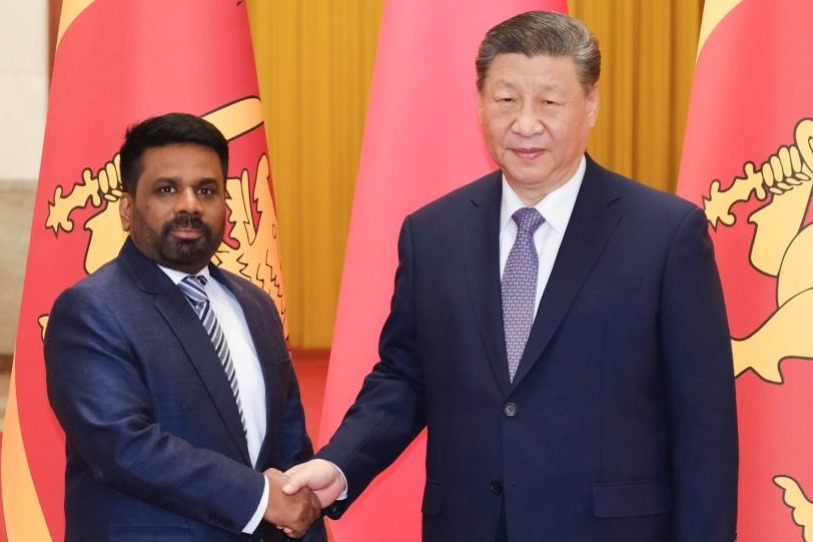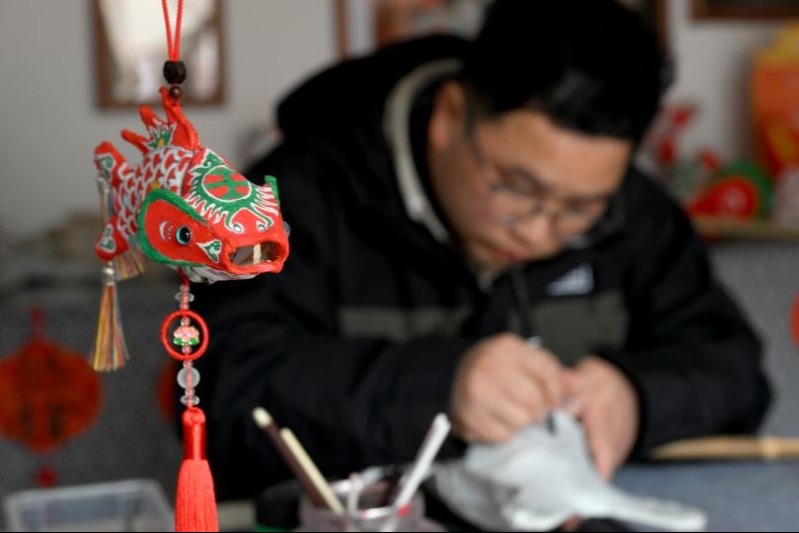China’s unyielding fight against corruption
2025-01-05 21:20 Xinhua
This photo taken on Sept. 5, 2024 shows an exterior view of the Great Hall of the People in Beijing, capital of China. (Xinhua/Li He)
BEIJING, Jan. 5 (Xinhua) -- China's top disciplinary agency is set to convene a pivotal plenary session from Jan. 6 to 8, where it will outline key priorities in the fight against corruption for the year ahead.
In a recent meeting, Chinese leadership assessed the country's current anti-corruption landscape, emphasizing the need for “exceptional“ clarity of purpose and resolve in the fight against graft, with zero tolerance for complacency or leniency.
Over the past decade, China has maintained an unprecedented anti-corruption campaign, marked by the investigation of a record number of high-ranking officials and its broad impact across various sectors.
Today, this relentless crackdown has become the norm. People now understand that the leadership's pledge that “anti-corruption is an ongoing endeavor without end“ is not mere rhetoric, but a steadfast commitment to action.
China's anti-corruption battle continues to roar. In 2024, it made waves in sectors such as finance, energy, healthcare and sports, while dismantling sophisticated forms of graft that sought to conceal themselves as legitimate market practices.
According to the country's top anti-corruption watchdog, 58 high-ranking officials under the supervision of the Communist Party of China Central Committee were probed last year.
The crackdown on corruption has also intensified in areas impacting the daily lives of ordinary people. A campaign launched in April 2024 saw 433,000 low-ranking officials disciplined, with 14,000 referred for prosecution.
In its ongoing efforts to track down corrupt fugitives, China has secured the return of 1,306 individuals who had fled abroad and also recovered illicit assets totaling 15.4 billion yuan (about 2.1 billion U.S. dollars) between January and November 2024.
KEY SECTORS PRONE TO CORRUPTION
China has broadened its fight against corruption in key sectors vulnerable to malpractice, including finance, energy, tobacco, pharmaceuticals, sports and infrastructure projects.
Among them, the pharmaceutical sector stands out, with 52,000 cases filed and 2,634 individuals referred to prosecutors. These individuals were allegedly implicated in corrupt practices, including accepting kickbacks, defrauding medical insurance funds, and manipulating appointment slots for profit, according to a report by the National Supervisory Commission.
The crackdown on misconduct in this sector has delivered tangible results, with medical insurance departments recovering 24.2 billion yuan in misappropriated funds. In 2024, compared to 2022, average discharge costs in public hospitals dropped by 5.7 percent, while medication costs fell by 12.1 percent.
Sports is another key focus of the anti-corruption drive. In May 2024, Gou Zhongwen, former head of the General Administration of Sport (GAS), was placed under investigation. Gou was subsequently arrested in December last year on charges of bribery and abuse of power.
Several high-ranking sports officials stood trial in 2024, including Du Zhaocai, former deputy head of the GAS, who was sentenced to 14 years in prison, and Li Tie, former head coach of the national men's football team and a renowned former player, who received a 20-year sentence.
SOPHISTICATED CORRUPTION TACTICS
As corruption tactics evolve, China's anti-corruption efforts face new challenges. Corruption modus operandi has shifted from traditional forms, such as accepting cash and real estate bribes, to more complex schemes involving the acquisition of shares and paid services in exchange for illegal favors.
Some corrupt practices are increasingly being disguised as legitimate activities, with examples including private lending and speculative trading. Others involve the receipt of assets through shadow companies or third-party holdings.
Additionally, some officials may provide benefits while in office but only accept bribes after retirement, creating a delay between the corrupt act and the reward.
In one case, Fan Yifei, former vice governor of the People's Bank of China, used his brother's investment company to secretly amass wealth. Rather than offering cash, bribe-givers provided fake investment projects, with his brother's company profiting from fraudulent agreements that required no actual money.
“A businessman might offer me money directly, and I'd refuse. But if he gives it in the form of stocks or other assets, not directly to me but to my family, that's a whole different matter,“ Fan confessed, highlighting why such corrupt practices are much harder to trace.
In response, anti-corruption agencies have strengthened collaboration with departments of public security, taxation and auditing, leveraging advanced technologies such as big data and cloud computing to uncover deeply entrenched corruption.
China has also stepped up efforts to punish those who offer bribes. In the first three quarters of 2024, anti-graft watchdogs investigated 19,000 individuals for offering bribes and referred 2,972 for prosecution.
Offering of bribes is a key factor in the persistence of corruption, said Song Wei, deputy head of the Beijing research base for integrity, adding that addressing both bribe-taking and bribe-giving is crucial for effectively curbing corruption.




